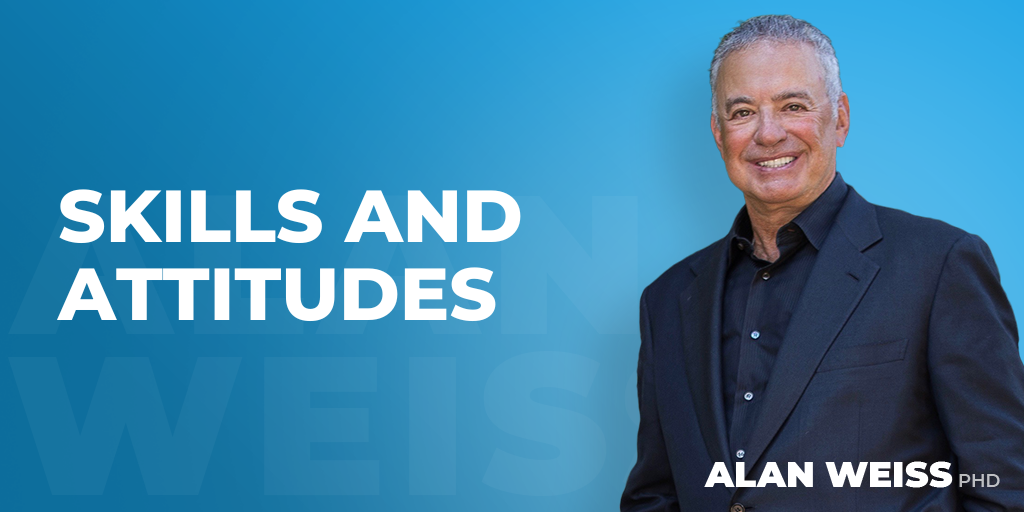Random Consulting Thoughts
I’ve been looking and listening, gathering material for new projects. Here are some excerpts:
1. Wal•Mart has a new tag line, “Save Money. Live Better.” It is elegant in its simplicity. And whether you like the company or not, whether you shop the stores or not, it’s brilliant. Everyone should have a sharp point on their “arrow.” How do you want to be known? I create community. What result do you provide? Or do you have a flying barn rather than an arrow?
2. Sweden, apparently, is not going to intervene to try to save Saab, one of the preeminent icons of the country. They make good cars and have crafted highly effective jet fighters, among other things, impressive in a small country. Yet Sweden, often cited for its socialistic bent, is deciding that it’s better for the company to fail than for the government to save it. We once made televisions in the US, but no longer do. No big deal. We’ve allowed airlines, steel mills, textile firms, and paper companies—once all stalwarts of the economy—to fail. Why are current auto companies immune from this treatment in this country? I don’t see any Studebaker or DeSoto dealers around. As consultants, we have to do what’s in the client’s best interests, and that often means acknowledging that long histories don’t justify long futures, for people, for processes, or for businesses.
3. Mother Teresa was cited after her death as “doubting” her faith, which created great press among those citing the weaknesses of organized religion. They all missed the point, which is that doubt is common and necessary. We should all be willing to doubt what the client tells us, doubt what we hear, and doubt that an off-the-shelf or generic response will work. Counterintuitively, it’s a sign of confidence to be able to doubt (or else the doubt is overwhelming and terrifying). People free to doubt, who then voluntarily pursue a belief or course of action, are the freest people there are.
4. Life is about options. George Will, the conservative pundit who is the resident intellect on ABC’s “This Week,” often comments that the two political parties are supposed to disagree, are supposed to oppose the other, and are supposed to be tough to create alliances with. That’s the nature of the system, the “loyal opposition.” There is nothing disloyal about questioning your client, your colleagues, or your collaborations. Don’t allow inertia to pull you into an undesirable future, as if it’s the default position.
5. The two primary factors in building self-esteem and confidence are successfully managing time and successfully managing relationships. If you can go through life in control of your time and not burdened by festering sores from diseased relationships, you are a free person. You can always make another dollar, but you can’t make another minute. Wealth is discretionary time. Are you working so hard, or brooding so much, that you are making more and more money while decreasing your wealth?
6. Remember the “ski instructor principle,” which I write about in my books and columns. You want that instructor who is just a few yards ahead of you on the slope, demonstrating what you should do, giving you expert help in the midst of the action, and commenting on what was done immediately after. You don’t want the instructor who talks a good game over brandy in the chalet, takes your money, and sends you up the hill by yourself, waiting to hear how it went. A great many people today are offering advice and coaching—certificates, initials, equipment, and all—who have never gone up the hill. Caveat emptor.
© Alan Weiss 2009. All rights reserved.







michael cardus
Alan,
I have heard your “ski instructor principle” before in your work. Although it never really stuck.
Until now. The other day an “executive coach” called me wanting to form an alliance with my Team Building company.
I asked him to take about 30 minutes and talk me through his process etc…
Great stories although he had little like you wrote all the certs, initials, equiptment. although as you say “have never gone up the hill”
I see this more now with the Coaching term. Everyone is a coach, it is causing a liquidation of the brand.
I am not a coach nor do I want to be called or be a coach. It is not what I have and enjoy doing.
Alan Weiss
We are debasing coaching and other practices as sure as we are debasing the currency. Always ask, “Who certifies the
certifiers?”
Tony
Alan – this is a great line that could be said more to almost every company I have worked.
“Long histories don’t justify long futures for people, processes and businesses.”
Ginny McMinn
Experience AND training are key to offering great service to clients and building a great consulting practice. It is important to be able to respond to each set of circumstances and needs, not just tweak a canned product for each engagement!
Alan Weiss
Whose training? In what? Responding situationally, as you point out is important, is really a matter of judgment and experience, not training.
Ginny McMinn
There is technical content I would expect a consultant to know. For example, in HR, there are many technical areas (recruiting, compensation, etc.) that a consultant should know. Training in one’s area of expertise. It is also possible to receive training in the process of consulting, making it more advantageous for the client and more profitable for the consultant.
Alan Weiss
I’d remind you that recruiting, comp, etc. are more and more outsourced and treated as commodities in terms of value. No one develops consultants more than I do and no one has more diverse offerings. But I’ve never considered it “training.” There is no “process of consulting.” There are many processes and models that excellent consultants can call upon and use for synergy. But nothing beats common sense. If you could “train” consultants, there’d be far more good ones….